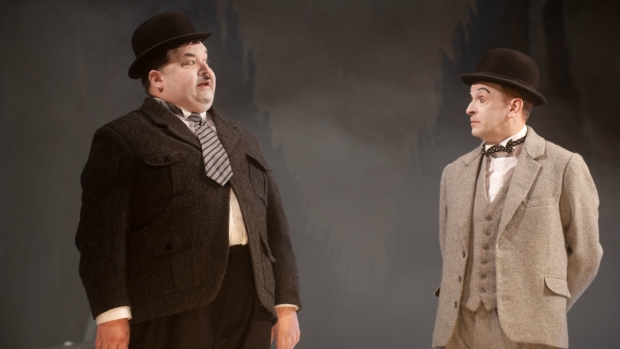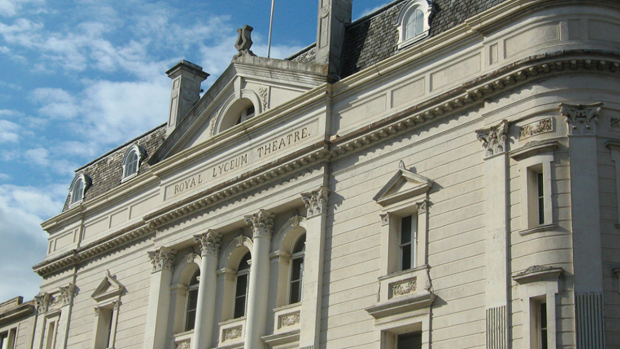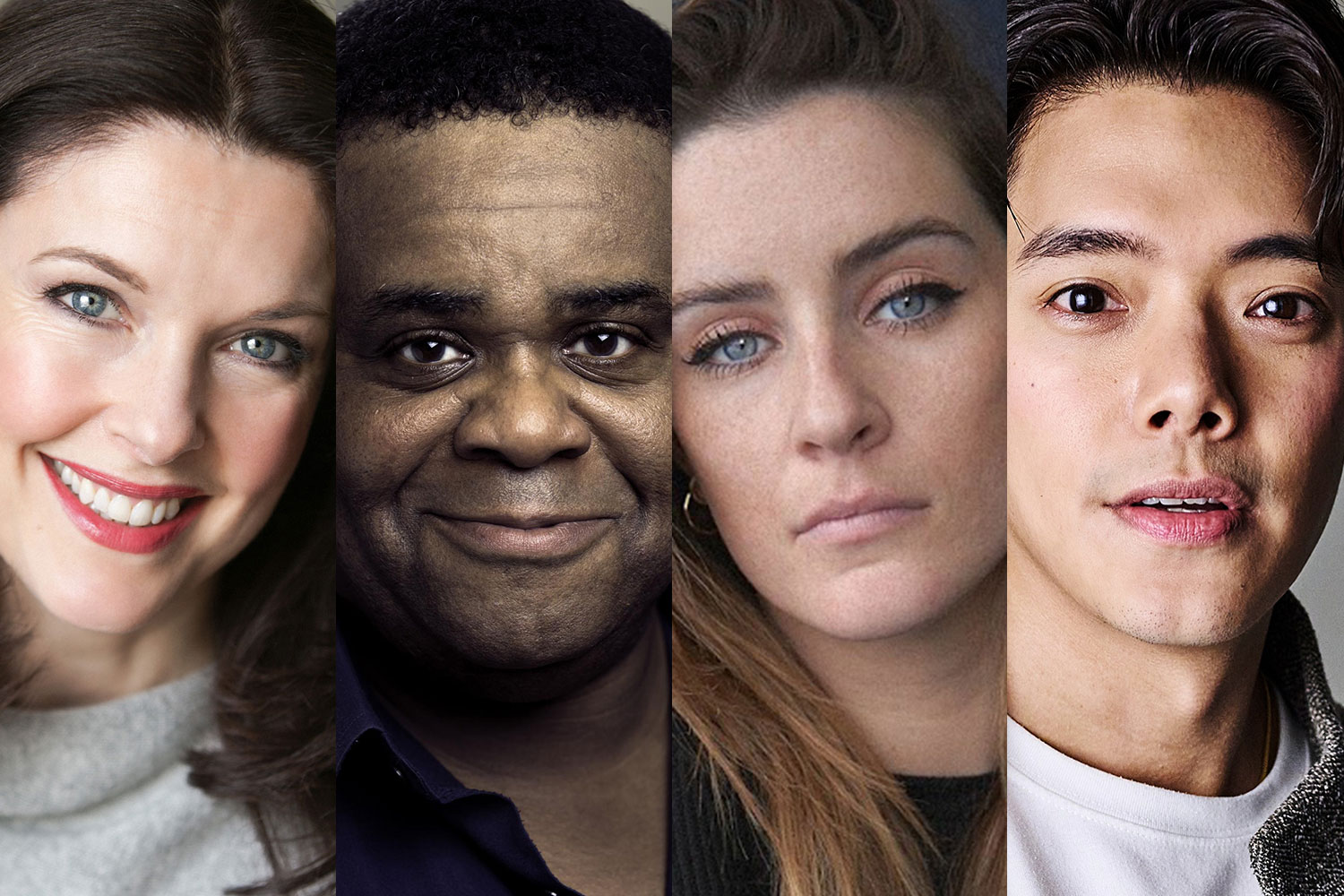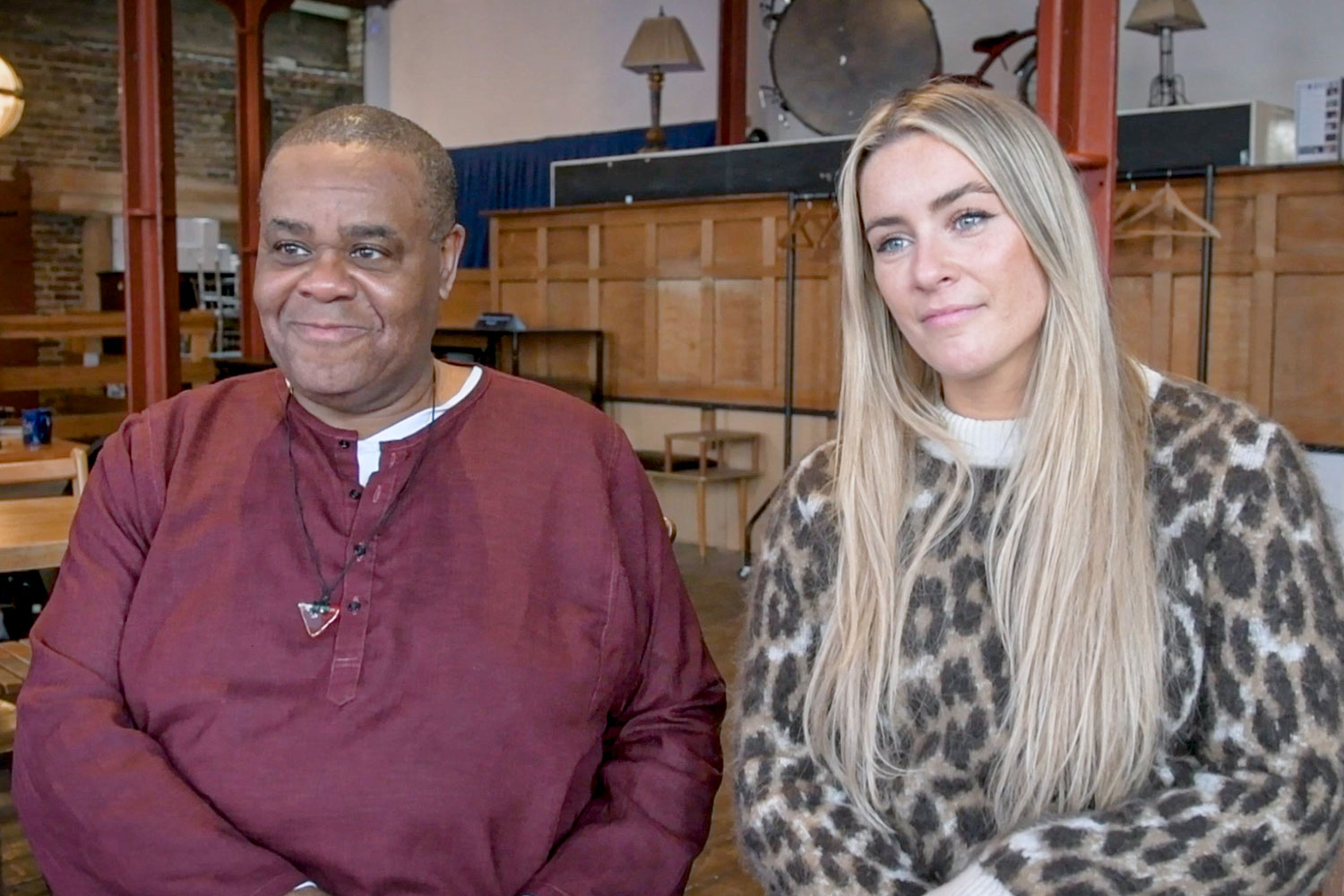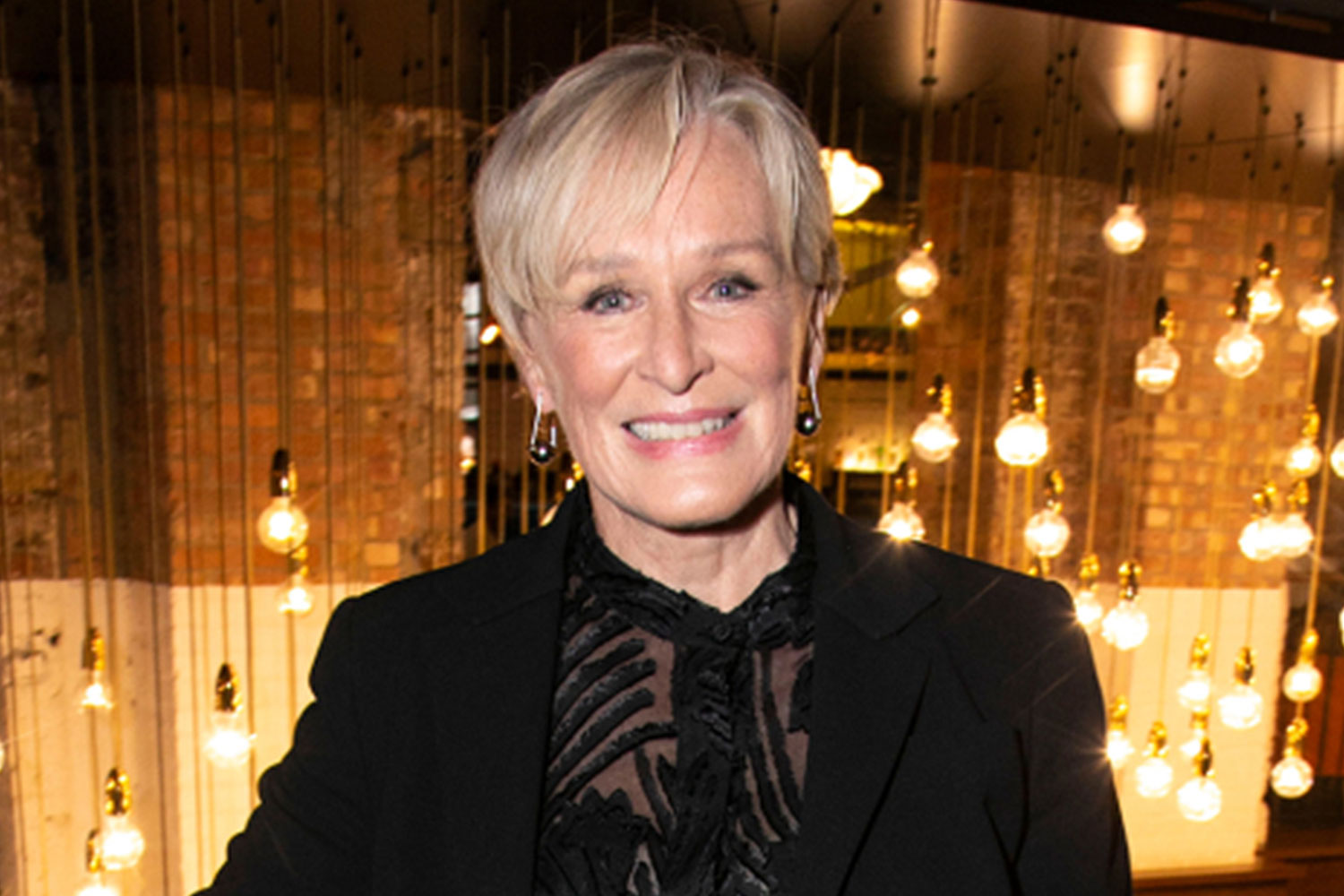”Macbeth (an undoing)” at Royal Lyceum Theatre, Edinburgh – review
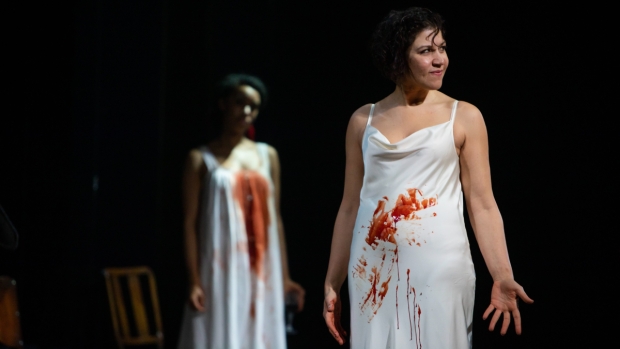
© Stuart Armitt
Instead, she gives us a reimagining of the play’s story as a conversation between Shakespeare’s time and ours. Harris directs the play herself, and uses several Brechtian devices which draw our attention to the mechanics of the theatrical experience, but the chief delight is in the clever script, which mixes Shakespeare’s language with Harris’ own so successfully that, in some scenes, it’s hard to sense where the dividing line is.
It’s at its finest in the scenes between Macbeth and his wife, which are made unusually tender by little asides embedded inside Shakespeare’s lines, such as where they correct one another or she tells him to check the catering for Duncan’s arrival. It draws them closer together, and makes the violent climax of their stories all the more shocking when the denouement comes. Elsewhere, Lady Macbeth banters with the raven that croaks Duncan’s entrance to the castle. The dagger soliloquy gains a new immediacy, and Macbeth’s unravelling mental state gains added urgency when he takes to sitting in the chamber where Duncan was murdered.
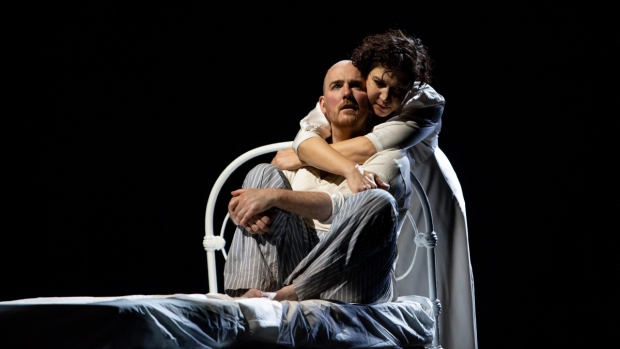
© Stuart Armitt
It’s exhilarating to watch a dramatist who’s so confident with her material, especially when she springs surprises with such a familiar story. Lady Macduff, for example, is Lady Macbeth’s sister, which adds a whole new layer of complexity to her murder. We begin to see cracks in the Macbeths’ relationship when she realises he hasn’t told her everything about the witches’ prophecy, and Harris answers definitively the old puzzle question about how many children Lady Macbeth had. The second half plays with Shakespeare’s tale more fundamentally, questioning how real the supernatural element is and raising questions as to where the agency in the Macbeths’ marriage lies. It’s Macbeth who does the sleepwalking, for example, while his wife watches on with the doctor, though even that becomes problematised as Harris adds another layer later in the play.
Lady Macbeth effectively becomes the central character, and she’s played with rock-solid assurance and shape-shifting variety by Nicole Cooper, though she’s challenged for sheer watchability by a deeply unnerving housekeeper (or should that be witch?) from Liz Kettle. Adam Best’s Macbeth is rather monotone in comparison, and he’s nowhere near as engaging as James Robinson’s charismatic Banquo or Paul Tinto’s brusque Macduff. Star Penders does a lot with the small part of Malcolm, as does Taqi Nazeer as the wounded soldier.
It’s too long, however. No play should bring down its curtain at 10:30pm in this day and age, and the final half hour adds a few layers too many. Nevertheless, it’s an exciting theatrical journey that plays skilfully with the audience’s expectations and even manages to pique our curiosity, which is no mean feat in so familiar a story.





